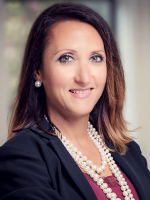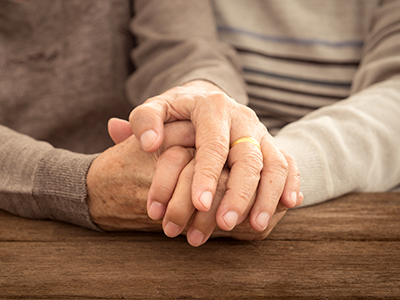
Studies show that lacking sexual attraction to other people is as normal as heterosexuality or homosexuality.
It’s easy to take for granted that sexual attraction is a universal experience and that certain people can send our hearts fluttering and fantasies racing. But some people never experience feelings of sexual attraction – not in their youth, not during puberty when their peers’ hormones are raging, and not as adults.
According to Vancouver Coastal Health Research Institute scientist and clinician Dr. Lori Brotto, people who are asexual –who lack feelings of sexual attraction – challenge the prevailing belief of the universality of sexual attraction in humans, and are often seen as lacking as a result. However, Dr. Brotto and colleague Dr. Morag Yule’s recently published paper in Archives of Sexual Behaviour compiled evidence across a number of studies on asexuality and found that asexuality is neither a psychiatric disorder nor sexual dysfunction as prevailing theories have suggested.
“Asexuality is not an extreme version of sexual dysfunction because first and foremost asexual people don’t experience distress – they’re not bothered by their lack of sexual attraction and they don’t wish to have it,” explains Dr. Brotto, a registered psychologist and professor in the Department of Obstetrics and Gynaecology at the University of British Columbia. “Also, we found that asexuality is not a reaction to, or coping mechanism for, sexual trauma that may have happened earlier in their life.”
“In the same way that one’s orientation can point toward same sex, or opposite sex, or both sexes, we're saying that it’s also theoretically possible for orientation to land nowhere when that compass of sexual orientation is spinning. Looking at both quantitative and qualitative studies that have tried to characterize the nature of asexuality, we found that asexuality really is a unique sexual orientation.”

Dr. Brotto's interest in studying asexuality came from treating couples for whom low sexual desire was being experienced by one partner and straining their relationship. Through her clinical practice, she realized that for some individuals, low desire is actually asexuality, which does not need treatment.
“Asexuality isn’t a diagnosis or a condition that you treat, in the same way that we don’t treat a person’s sexual orientation like what used to happen with reparative therapy for homosexuality in the 60s and 70s, which is now illegal,” she says.
The researchers found that most typically asexual people have never developed sexual attractions, which points to something perhaps in prenatal development that set their course for an asexual sexual orientation. They also found that approximately half of asexual individuals continue to have romantic attractions.

Dr. Brotto’s current research seeks to find biological correlates of sexual orientation. She was recently part of a working group that submitted a plea to the British government to include measures of asexuality in their national census scheduled for 2021. She hopes that the census will offer the first ever truly representative sample of asexual peoples within a country. Overall, she hopes her work directly challenges the stigma around asexuality through education.
“We want to continue showing that asexual people don’t have mental issues, this isn't an issue of trauma, this isn’t celibacy – they’re just like the rest of us but developmentally they didn’t develop attraction whereas a sexual person did,” explains Dr. Brotto.
“In the same way that other sexual minority groups have fought for rights, visibility, and recognition, those kinds of advances should be applied to asexual peoples,” she says. “They don’t fit into any sexual orientation category, which almost leaves them in a nowhere-land and that’s not a place anyone wants to be – everyone wants and deserves to feel a sense of inclusion.”


